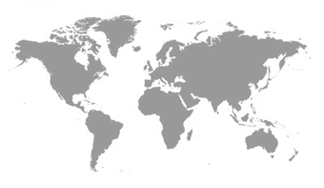Biofuels board recommends hike in ethanol blend to 10%
Despite the country’s shortfall in ethanol production, National Biofuels Board has recommended to the Department of Energy that the mandated 10 percent ethanol blend with gasoline be implemented starting middle of the year, an official said yesterday.
Rose Marie Gumera, manager of the Sugar Regulatory Administration’s (SRA) planning department, told Malaya Business Insight that the NBB has given oil companies six month to implement the 10 percent blend which was supposed to be in effect at the start of the year.
The current blend is 5 percent.
"Upon the assessment of the board, and based on the consultations with stakeholders, almost unanimously the stakeholders supported the increase in mandate," she said.
"Probably by July 2011, start na ang full implementation," she added.
The Biofuels Act of 2006 mandates that all gasoline products distributed and sold by oil companies in the market should have at least 5 percent bioethanol blend by volume by 2009, to be increased to at least 10 percent by 2011.
The law also mandates that by 2011, all ethanol that would be blended with gasoline should be locally sourced.
Based on the Philippine Energy Plan the expected demand for ethanol last year was 219 million liters, with demand doubling to 438 million liters in 2011 when the 10 percent blend takes effect.
There are only three ethanol plans whose production is geared for blending. San Carlos Bioenergy has a capacity 38 million liters; Roxol Bioenergy, 30 million; and, Leyte Agri, 9 milion liters.
Because of this shortfall in domestic production, Gumera said that the government would allow oil companies to continue ethanol importation.
Officials earlier said the government is hesitant to hike the mandated ethanol blend because of the shortfall in domestic production,
Energy Undersecertary Jose Layug said last month that according to the Biofuels law, the 10 percemt blend is optional.
Local ethanol producers are saying that they are having a hard time competing with imported ethanol from Brazil.
Tetchi Capellan, executive director of the Ethanol Producer’s Association of the Philippines, earlier said that the landed cost of Brazilian ethanol is P25 per litter. The marginal cost of domestic ethanol producers, in contrast, is P36 per litter.
This is the reason ethanol producers are asking the government to hike the tariff on imported ethanol from the current 1 percent to 20 percent.
San Carlos Bioenergy, the country’s largest ethanol plant, is now shut down, citing its inability to compete with Brazil.
In the middle of last year, Jose Maria Zabaleta chairman of San Carlos Bioenergy said their ethanol facility in Negros Occidental might not resume operations until the government hiked the tariff on imported ethanol.
The ethanol plant was shutdown for maintenance in July. The plant was suppose to go back on stream just in time for the harvest season but the owners decided not to operate it because it was losing money.
This article hasn't been commented yet.
















Write a comment
* = required field